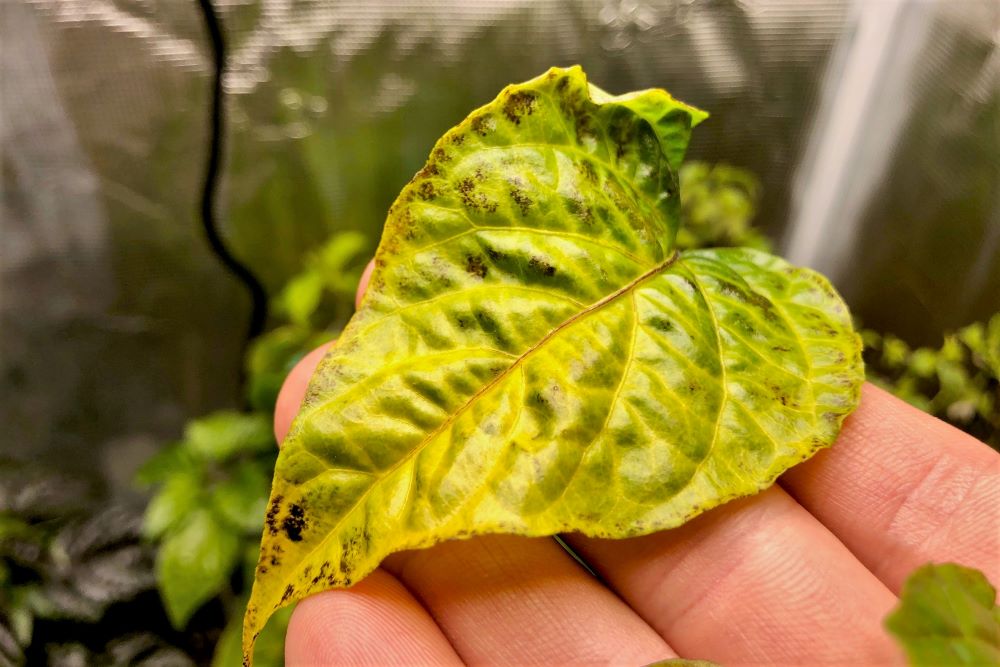Organic Vs. Synthetic Fertilizers: Which Is Best for Nurturing Healthy And Balanced Pepper Plants?
In the world of supporting healthy pepper plants, the choice between natural and artificial plant foods stands as a crucial choice with significant ramifications. While both options aim to provide crucial nutrients to support plant growth, the subtleties of their effect on the soil, plant wellness, and the setting stimulate an argument that echoes throughout the horticulture neighborhood. Understanding the distinctive advantages and potential challenges of each fertilizer type is important for pepper farmers seeking to optimize their returns while preserving an eco-conscious and sustainable strategy.
Benefits of Organic Plant Foods
Organic fertilizers supply an environmentally-friendly and sustainable technique to nourishing pepper plants, providing crucial nutrients without making use of synthetic chemicals. These all-natural fertilizers are obtained from organic resources such as garden compost, manure, bone meal, and algae, promoting dirt health and wellness and biodiversity. Unlike synthetic plant foods, natural choices launch nutrients slowly, making certain a consistent and well balanced supply for pepper plants to prosper.
One substantial benefit of natural plant foods is their ability to boost soil structure and water retention. By boosting soil health and wellness, natural fertilizers promote valuable microbial activity, which helps in nutrient uptake by pepper plants. In addition, organic fertilizers lower the risk of chemical run-off, securing water resources from pollution and guarding the environment.
Additionally, natural plant foods contribute to long-lasting dirt fertility by advertising the development of advantageous soil microorganisms. These organisms help break down natural issue, releasing nutrients in a type that is quickly obtainable to pepper plants. best fertilizers for peppers. By fostering a healthy soil ecosystem, organic fertilizers sustain lasting pepper farming practices that benefit both plants and the environment
Disadvantages of Synthetic Fertilizers
Synthetic fertilizers, in comparison to their organic equivalents, present different drawbacks when used to nurture pepper plants, affecting both plant health and environmental sustainability. One significant disadvantage of synthetic plant foods is their tendency to leach nutrients from the dirt rapidly.
Furthermore, the overuse of synthetic plant foods can contribute to water air pollution. Excess plant foods not absorbed by plants can clean away into water bodies, leading to eutrophication, where algae blossoms deplete oxygen degrees in the water, hurting aquatic life. In addition, synthetic plant foods are normally originated from non-renewable sources, such as nonrenewable fuel sources, adding to carbon exhausts and environmental destruction during their manufacturing.
Nutrient Absorption Contrast
Effective nutrient absorption plays a vital function in the overall wellness and growth of pepper plants. When comparing natural and synthetic fertilizers in regards to nutrient absorption, natural plant foods have the advantage of supplying an extra balanced and slow-release resource of nutrients (best fertilizers for peppers). Organic fertilizers consist of a selection of macro and micronutrients that are this hyperlink not only valuable for the plants but likewise advertise healthy soil microbial activity, which assists in nutrient uptake. On the various other hand, synthetic fertilizers usually offer a fast launch of nutrients, which can lead to leaching and overflow, leading to reduced nutrient absorption prices by the plants.
In addition, natural plant foods boost dirt framework and water retention ability, permitting pepper plants to accessibility nutrients more efficiently. This improved dirt top quality promotes root development, enabling better nutrient absorption. Artificial plant foods, although originally enhancing plant development because of their high nutrient concentrations, may hinder long-term nutrient absorption by derogatory dirt health and wellness gradually.
Environmental Effect Considerations

On the various other hand, synthetic plant foods, although commonly more right away available and concentrated to plants, can have damaging effects on the setting if not used appropriately (best fertilizers for peppers). Their production calls for high energy inputs, bring about greenhouse gas discharges and contributing to environment change. The overflow of here excess artificial fertilizers can infect water sources, leading to eutrophication and hurting aquatic ecological communities.
Finest Fertilizer Practices for Peppers
To achieve this, it is important to follow ideal plant food practices tailored to the details needs of pepper plants. One critical practice is to carry out a soil test prior to using any kind of plant foods.
One more crucial method is to fertilize pepper plants at the best time. Usually, peppers gain from receiving plant food at growing and after that once again when they start to flower. Over-fertilizing can lead to vitamins and mineral inequalities and damage the plants, so it is crucial to comply with recommended application prices.
In addition, selecting a balanced plant food with an NPK ratio that matches pepper plants' demands is fundamental. Eventually, combining natural and synthetic fertilizers carefully can help nurture healthy and balanced pepper plants while reducing ecological effect.
Verdict

Organic fertilizers supply a sustainable and environmentally-friendly strategy to nourishing pepper plants, supplying vital nutrients without the usage of artificial chemicals. Unlike synthetic fertilizers, natural alternatives release nutrients gradually, making certain a stable and well balanced supply for pepper plants to flourish.
Artificial plant foods, in comparison to their organic counterparts, present various drawbacks when utilized to nurture pepper plants, influencing both plant health and environmental sustainability. When comparing artificial and organic fertilizers in terms of nutrient absorption, organic plant foods have the benefit of providing a more well see this page balanced and slow-release resource of nutrients.In addition, natural plant foods enhance soil structure and water retention capacity, permitting pepper plants to access nutrients more efficiently.